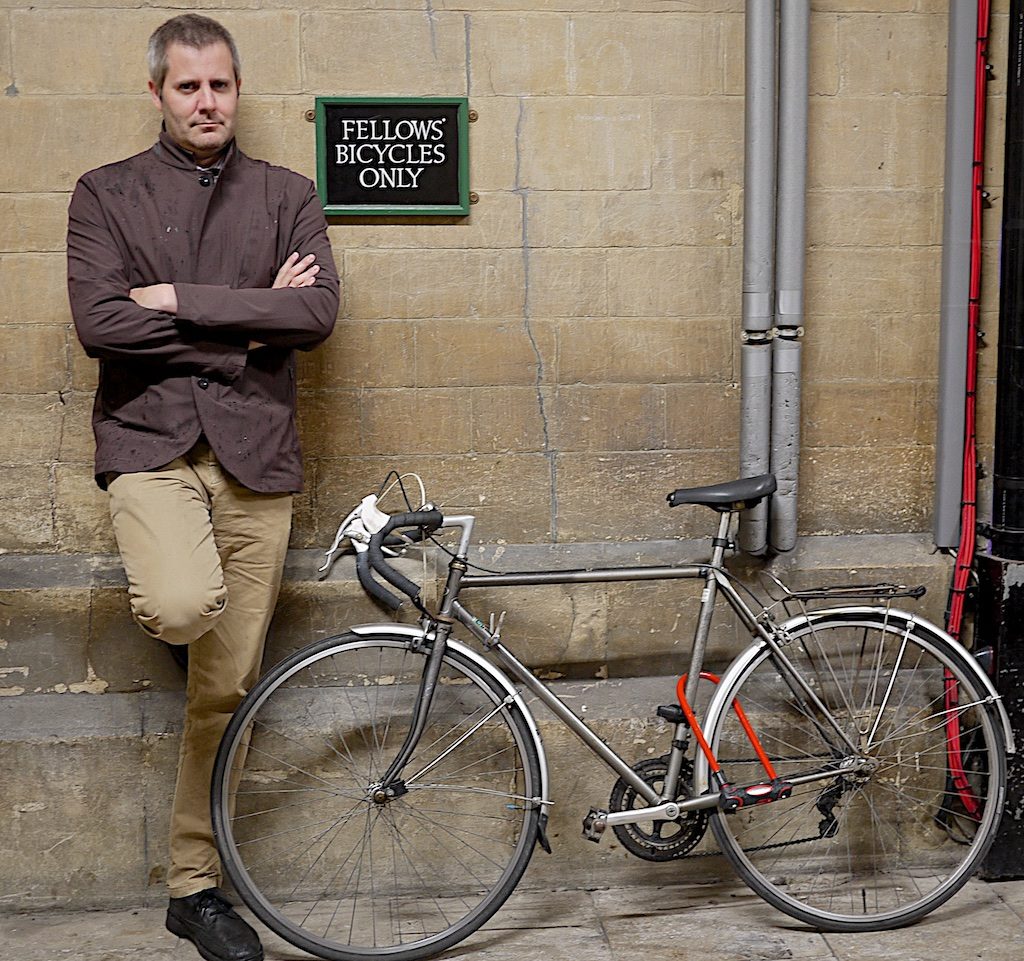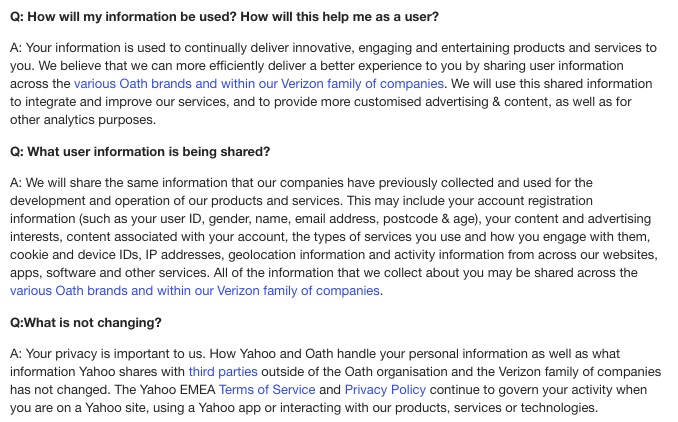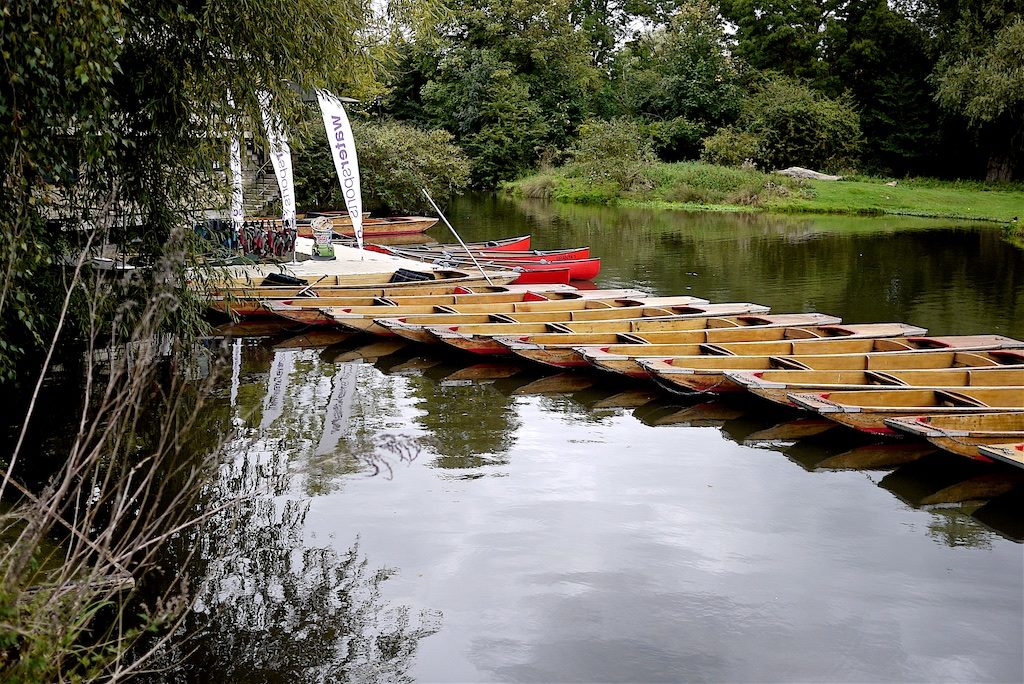I went to Oxford last week to interview Philip Howard for the Talking Politics podcast. Since June last year he has been Professor of Internet Studies at the University and Director of Research in the Oxford Internet Institute where his current project is on Computational Propaganda, which he elegantly defines as “algorithms + lies”.
I’ve been keen to interview Philip for ages, because his work illuminates the question that currently preoccupies me: what is the Internet doing to our politics, and thereby to democracy? He’s a sociologist by background, and he first came to this question in 2000, when he worked as an intern (but really as an ethnographer) on both the Al Gore and George W. Bush campaigns. What he saw, close-up, was a small group of techies who had already sussed the potential of the Net for political campaigning, and were experimenting with data-driven strategies which, among other things, played fast and loose with people’s privacy. From this came his first book on technology and democracy — New Media Campaigns and the Managed Citizen.
After observing how the technology operated in a liberal democracy, Philip then moved to ask what does the technology mean for societies where the culture of use is greatly constrained. In the end, this produced a book — The Digital Origins of Dictatorship and Democracy: Information Technology and Political Islam which covers a large number of predominately-Muslim countries. What he found was that while authoritarian rulers gradually became attuned to the potential of digital technology for social control, nevertheless availability of the Internet also brought noticeable changes in what politics meant for their populations. These changes were in areas like gender politics and in the places where ordinary people would go to learn about religious texts. The Net, he found for example, was where young Muslim women learned to talk about love in cultures where marriages were arranged; the place where people with questions about their lives and faith could go to mullahs and imams who were not necessarily those in their locality. In this work he found what in retrospect looks like “a very clear arc to the Arab Spring”.
The third book of his that I wanted to talk about was his latest — *Pax Technica: How the Internet of Things May Set Us Free or Lock Us Up — in which, instead of looking back at recent history of the impact of digital technology, he tries to look forward. This is always a dangerous thing for an academic to do, and he has experienced much more pushback from critics than he had from his earlier books. I can see why. What he’s trying to do is to figure out how the ‘Internet of Things’ juggernaut that is currently heading our way will change societies, and that’s a really big question.
I found the book both fascinating and frustrating. Fascinating because it’s bold: for example, he thinks that a comprehensively networked world will have some of the uneasy stability that the era of the Cold War had: states will be wary of engaging in cyberwarfare simply because the consequences are so incalculable. (A kind of virtual Mutual Assured Destruction.) The Pax Technica of the title is a play on the Pax Britannica of history — a world order imposed by the dominance of a particular global power. That’s an interesting idea, if only because discussions about digital technology rarely wind up in the realms of geopolitics. Another — less speculative IMHO — idea is that a major determinant of our networked future will be the technical standards that emerge as the dominant ones (much as TCP/IP emerged as dominant in the 1980s). There are echoes here of Ross Anderson’s pathbreaking paper “Privacy versus government surveillance: where network effects meet public choice”.
What’s frustrating is that there’s a whiff of technological determinism about Pax Technica. I was reminded at times of Tom Friedman’s The Lexus and the Olive Tree: Understanding Globalization and The World is Flat. Friedman really does seem to believe that technology drives history. And I guess that a criticism of Pax Technica is that its author does too. (Which is a bit odd for a sociologist.) The difference between him and Friedman, though, is that Philip thinks that we might be able to divert the path of the juggernaut, whereas Friedman believes that we just have to grin and bear it.
Anyway, I greatly enjoyed that conversation in Oxford. As with all good conversations we had to break off long before we had exhausted the subject. It’ll be on the Net soon after this is posted. Hope you enjoy it.
If you do, then Philip’s Inaugural Lecture is also thought-provoking and interesting. His question: Is Social Media Killing Democracy?
And his answer? … well, tune in and find out…
Oh — and about the photograph: Philip is a Professorial Fellow of Balliol College. Which means that, among other things, he has a secure place to keep his bike.






